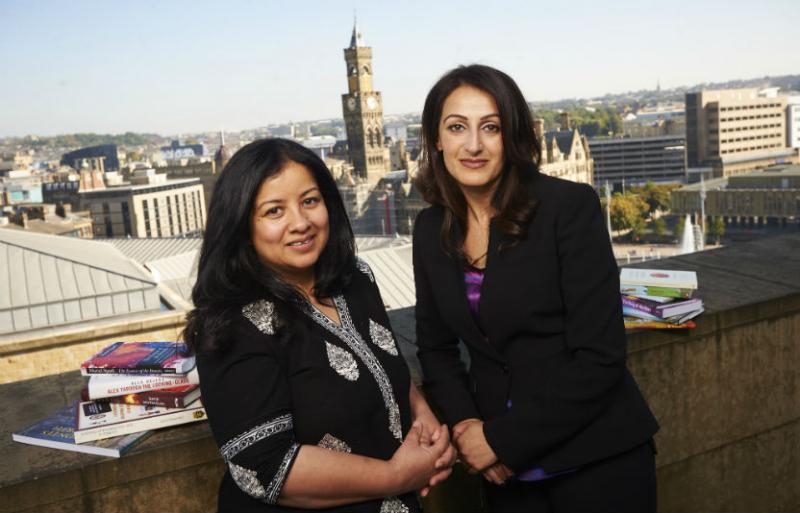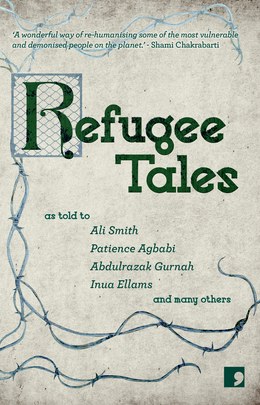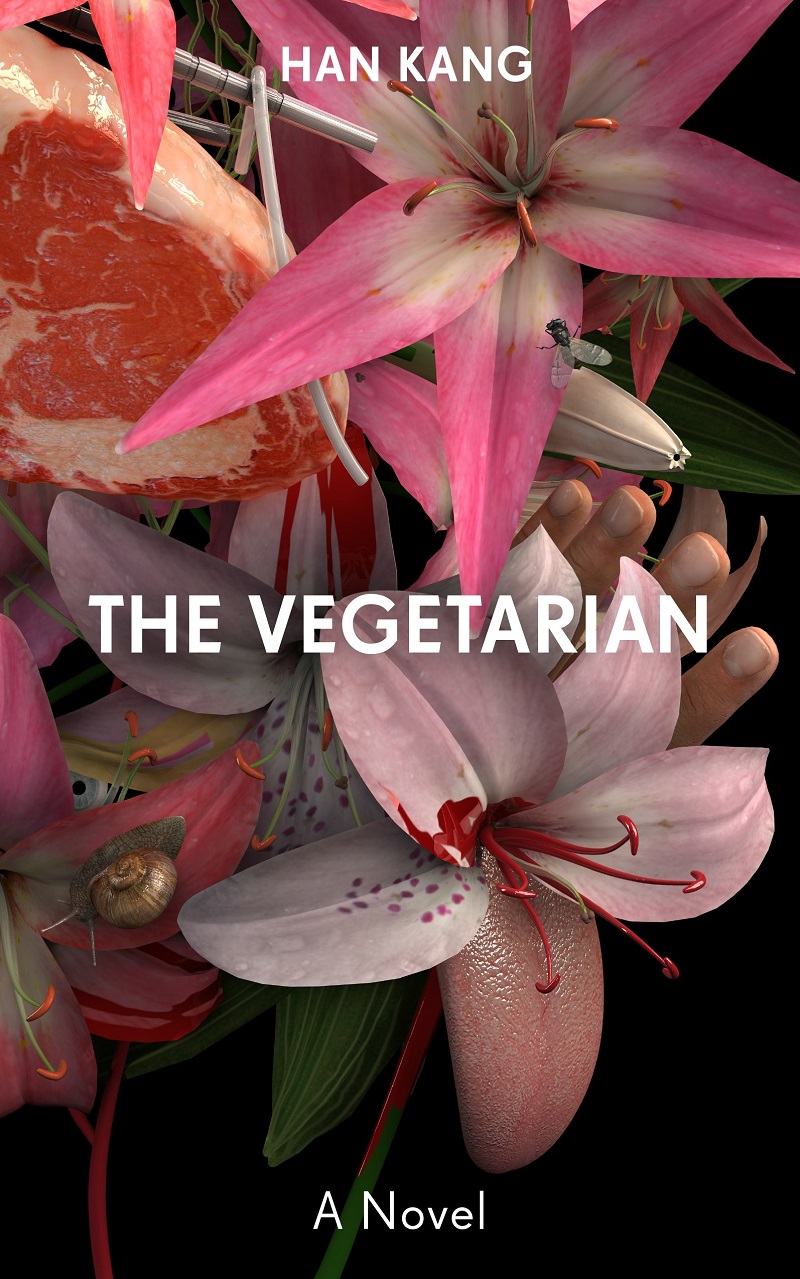h Club 100 Awards: Publishing and Writing - it's not all about the mainstream | reviews, news & interviews
h.Club 100 Awards: Publishing and Writing - it's not all about the mainstream
h.Club 100 Awards: Publishing and Writing - it's not all about the mainstream
This year's nominees include some remarkable ventures in not-for-profit and diversity

For more than three decades I reported on the publishing industry as a business journalist. The books, the deals, the authors and the publishers, plus the bookshops that sold then. When I started out in 1984, Waterstone’s was new and exciting, forcing the innumerable independents that had long been the backbone of the trade to raise their game. At Foyles, Christina still presided over a store – just the one – that was modelled on an Albanian department store.
When the NBA collapsed in 1995, it ushered in a period of destructive price promotion with which publishers and booksellers were still struggling when Amazon came along. Nobody realised what a game-changer it would be. Then came the eBook: publishers looked at the damage Napster caused to the music industry and took fright. Finally the crash of 2008 proved that books weren’t quite as recession-proof as everyone had thought.
Digital, meanwhile, had significantly lowered the cost of entry into publishing, including physical books, short-run printing available cheaply and on-demand. Young publishers could take their nascent visions and make them reality with minimal overheads. And they were braver and more imaginative than established businesses.
 Comma Press is a good example. Founded in Manchester by Ra Page, former editor of City Life magazine, as an artists’ group it published four short story booklets across four northern cities. The booklets turned into books and were followed by genre-based anthologies, translations, an Arabic imprint. Among the short stories published by Comma, a non-profit, was “Another Country”, which morphed into the internationally best-selling movie 45 Years. Eat your heart out, Penguin!
Comma Press is a good example. Founded in Manchester by Ra Page, former editor of City Life magazine, as an artists’ group it published four short story booklets across four northern cities. The booklets turned into books and were followed by genre-based anthologies, translations, an Arabic imprint. Among the short stories published by Comma, a non-profit, was “Another Country”, which morphed into the internationally best-selling movie 45 Years. Eat your heart out, Penguin!
Deborah Smith, who won the world’s most prestigious translation prize, the Man Booker International, with The Vegetarian by Han Kang, is a rather remarkable figure. Having graduated from Cambridge in English literature, she decided she’d learn Korean in order to explore the literature of that country. That was in late 2009. Eight years later, as well as a string of honours, she has a PhD in Korean Literature from SOAS and she’s set up her own publishing company, Tilted Axis, a not-for-profit dedicated to bringing Asian fiction to the west. Hats off.
 Shamefully, British publishing has for too long been white, middle-class and public school. After much hand-wringing it still is, so it’s vitally important that initiatives such as BAME in Publishing – which provides space to meet and talk, make connections and find mentors – and Creative Access, a social enterprise working to change the face of the creative industries, are striving to ensure equality of opportunity.
Shamefully, British publishing has for too long been white, middle-class and public school. After much hand-wringing it still is, so it’s vitally important that initiatives such as BAME in Publishing – which provides space to meet and talk, make connections and find mentors – and Creative Access, a social enterprise working to change the face of the creative industries, are striving to ensure equality of opportunity.
And three loud cheers to Syima Aslam and Irna Qureshi, who set up the Bradford Literature Festival to dispel the city’s stereotypes and to create “an international destination festival”. Litfests have been a growth industry over the last decade or so, Hay and Edinburgh – the gold standard for such events – inspiring events across the country, some of which have the feel of a WI meeting. The watchword for Aslam and Qureshi is accessibility. “We have worked hard to make sure the event is socially inclusive and to make sure that cost isn’t a barrier,” they have explained, adding that free tickets and subsidies will be offered to students, pensioners, refugees, asylum seekers and those on benefits.
The 10 contenders for the Hospital Club Awards in Publishing and Writing are diverse and exciting, and they embrace a wide cross-section of the book trade – yet none is from the mainstream. Which is as it should be.
Explore topics
Share this article
The future of Arts Journalism
You can stop theartsdesk.com closing!
We urgently need financing to survive. Our fundraising drive has thus far raised £49,000 but we need to reach £100,000 or we will be forced to close. Please contribute here: https://gofund.me/c3f6033d
And if you can forward this information to anyone who might assist, we’d be grateful.

Subscribe to theartsdesk.com
Thank you for continuing to read our work on theartsdesk.com. For unlimited access to every article in its entirety, including our archive of more than 15,000 pieces, we're asking for £5 per month or £40 per year. We feel it's a very good deal, and hope you do too.
To take a subscription now simply click here.
And if you're looking for that extra gift for a friend or family member, why not treat them to a theartsdesk.com gift subscription?
more Books
 'We are bowled over!' Thank you for your messages of love and support
Much-appreciated words of commendation from readers and the cultural community
'We are bowled over!' Thank you for your messages of love and support
Much-appreciated words of commendation from readers and the cultural community
 Mark Hussey: Mrs Dalloway - Biography of a Novel review - echoes across crises
On the centenary of the work's publication an insightful book shows its prescience
Mark Hussey: Mrs Dalloway - Biography of a Novel review - echoes across crises
On the centenary of the work's publication an insightful book shows its prescience
 Frances Wilson: Electric Spark - The Enigma of Muriel Spark review - the matter of fact
Frances Wilson employs her full artistic power to keep pace with Spark’s fantastic and fugitive life
Frances Wilson: Electric Spark - The Enigma of Muriel Spark review - the matter of fact
Frances Wilson employs her full artistic power to keep pace with Spark’s fantastic and fugitive life
 Elizabeth Alker: Everything We Do is Music review - Prokofiev goes pop
A compelling journey into a surprising musical kinship
Elizabeth Alker: Everything We Do is Music review - Prokofiev goes pop
A compelling journey into a surprising musical kinship
 Natalia Ginzburg: The City and the House review - a dying art
Dick Davis renders this analogue love-letter in polyphonic English
Natalia Ginzburg: The City and the House review - a dying art
Dick Davis renders this analogue love-letter in polyphonic English
 Tom Raworth: Cancer review - truthfulness
A 'lost' book reconfirms Raworth’s legacy as one of the great lyric poets
Tom Raworth: Cancer review - truthfulness
A 'lost' book reconfirms Raworth’s legacy as one of the great lyric poets
 Ian Leslie: John and Paul - A Love Story in Songs review - help!
Ian Leslie loses himself in amateur psychology, and fatally misreads The Beatles
Ian Leslie: John and Paul - A Love Story in Songs review - help!
Ian Leslie loses himself in amateur psychology, and fatally misreads The Beatles
 Samuel Arbesman: The Magic of Code review - the spark ages
A wide-eyed take on our digital world can’t quite dispel the dangers
Samuel Arbesman: The Magic of Code review - the spark ages
A wide-eyed take on our digital world can’t quite dispel the dangers
 Zsuzsanna Gahse: Mountainish review - seeking refuge
Notes on danger and dialogue in the shadow of the Swiss Alps
Zsuzsanna Gahse: Mountainish review - seeking refuge
Notes on danger and dialogue in the shadow of the Swiss Alps
 Patrick McGilligan: Woody Allen - A Travesty of a Mockery of a Sham review - New York stories
Fair-minded Woody Allen biography covers all bases
Patrick McGilligan: Woody Allen - A Travesty of a Mockery of a Sham review - New York stories
Fair-minded Woody Allen biography covers all bases
 Howard Amos: Russia Starts Here review - East meets West, via the Pskov region
A journalist looks beyond borders in this searching account of the Russian mind
Howard Amos: Russia Starts Here review - East meets West, via the Pskov region
A journalist looks beyond borders in this searching account of the Russian mind
 Henry Gee: The Decline and Fall of the Human Empire - Why Our Species is on the Edge of Extinction review - survival instincts
A science writer looks to the stars for a way to dodge our impending doom
Henry Gee: The Decline and Fall of the Human Empire - Why Our Species is on the Edge of Extinction review - survival instincts
A science writer looks to the stars for a way to dodge our impending doom

Add comment